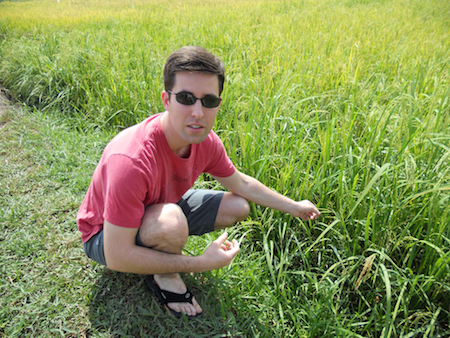The CPD Blog is intended to stimulate dialog among scholars and practitioners from around the world in the public diplomacy sphere. The opinions represented here are the authors' own and do not necessarily reflect CPD's views. For blogger guidelines, click here.
APDS Blogger: Zhaleh Boyd
Education and exchange have long been staples of U.S. public diplomacy efforts—longer even than the term ‘public diplomacy’ has been in use. Loyola University--Chicago (Loyola) has taken education and exchange diplomacy where no other foreign university has gone before: Vietnam.

In the subcontinent, there is really only one religion that unites India, Pakistan and Bangladesh: cricket.
As our attentions are increasingly focused on the Middle East, deficit reduction, spending and job creation…one issue that receives little attention but is inextricably linked to each of these critical issues is the mass privatization of American power. We are exploring this theme in my Corporate Diplomacy II course this spring, the inspiration of which came from the work of international relations scholar Allison Stanger, Director of the Rohatyn Center for International Affairs at Middlebury.
Throughout the world, billions of people rely on their faith to lift them above lives of hardship or the banality of arid secularism. For them, belief trumps politics, and efforts to influence them must incorporate faith as part of any appeal.
What is Gov 2.0? Gov 2.0 is all about a new culture of open governance, greater citizen involvement through the judicious use of web 2.0. Gov 2.0 is about interactive democracy against representative democracy, it is about open administration that involves citizens participation against closed administration and it is about spirit of voluntarily sharing information against closely guarding it.
During recent testimony in front of the Senate's Foreign Relations Committee Secretary of State Clinton made a splash when she commented, "I remember having an Afghan general tell me that the only thing he thought about Americans is that all the men wrestled and the women walked around in bikinis because the only TV he ever saw was Baywatch and World Wide Wrestling.” She went on to comment about the effect American media has on the image of the U.S. abroad. Predictably, the significance of her remarks were lost in the usual cacophony of howls about Al Jazeera and Russian media.
DOHA --- My conversation with two North African friends ranged widely, from the role of satellite television in the Arab world to the prospects for electoral reform in the region. Then we came to how other nations would deal with the new dynamics of Arab politics. One of my friends said, “In the past, diplomacy has been with the leaders, but now it must be with the people.”
 APDS Blogger: Mark Preston
APDS Blogger: Mark Preston
Pages
Visit CPD's Online Library
Explore CPD's vast online database featuring the latest books, articles, speeches and information on international organizations dedicated to public diplomacy.
POPULAR ARTICLES
-
March 22
-
February 23
-
February 22
-
April 1
-
April 11
Featured Blogger
Join the Conversation
Interested in contributing to the CPD Blog? We welcome your posts. Read our guidelines and find out how you can submit blogs and photo essays >.








